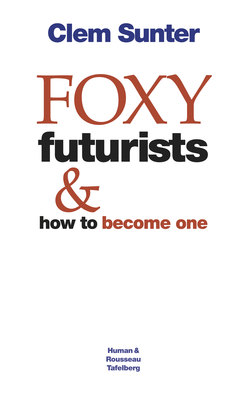Читать книгу Foxy Futurists and how to become one - Clem Sunter - Страница 12
На сайте Литреса книга снята с продажи.
Was Michael Jackson a hero?
Оглавление| The tumult surrounding Michael Jackson’s death has passed, as I surmised it would in the article. Real heroes make a difference in other people’s lives by offering grand visions and then helping people to achieve them, without any personal gain. In my catalogue, Steve Biko qualifies as a hero not only through articulating his beliefs in a way that was very persuasive: he was prepared to die for them as well. As he put it: “If all good days lasted for years there would be nothing good about them. But because they last only till dusk, they are always remembered with longing when bad days come. They serve the purpose of brightening the spirit on bitter wintry days.” Heroes may lead transitory lives, but they leave a permanent impression. |
“He was my hero.” It was a simple message on a placard outside Michael Jackson’s home. It got me thinking: “What is a hero, and was Jackson one?”
So, for a start, I went to the Shorter Oxford English Dictionary for a definition. It was split into three parts:
1 A name given to men of superhuman strength, courage, or ability favoured by the gods.
2 One who does brave and noble deeds; an illustrious warrior.
3 A man who exhibits extraordinary bravery, firmness, or greatness of soul, in connection with any pursuit, work or enterprise.
Before answering the question of Jackson’s credentials, I think it is worthwhile looking back in history at examples. Achilles was the Greek hero of Homer’s Iliad. He killed Hector in the Trojan War and was himself killed by Paris, who shot a poisoned arrow into his vulnerable heel. That is according to the Hutchinson Encyclopaedia.
Aeneas, on the other hand, was the Roman hero of the epic poem by Virgil entitled, unsurprisingly, The Aeneid. He wandered around the Mediterranean and fell in love with Dido, Queen of Carthage, before founding the Roman State. Both these men were favoured by the gods and fell within the first definition.
In their own way, they set the example for the second definition, which covers both warriors and intrepid explorers. Consider England’s national heroes. Boadicea was a British Queen who resisted the Romans (despite the definition, women also qualify); Arthur and his knights of the Round Table repelled pagan Saxon invaders; Henry the Fifth defeated the French at Agincourt in 1415; Horatio Nelson (the greatest of them all) defeated the combined French and Spanish Fleet at Trafalgar in 1805; Winston Churchill led the nation during the Second World War; and explorers included Livingstone, Scott of the Antarctic (even though he didn’t get to the South Pole first) and Shackleton.
The third definition covers a much wider range of people. Great statesmen such as early American presidents Washington and Lincoln and latterly John Kennedy qualify. Our own Nelson Mandela is right up there with Ghandi. Great names in literature such as Shakespeare and Tolstoy; in art, Leonardo da Vinci; in science, Einstein; in music Beethoven are all in the hero class. Sport would feature Pele (soccer), Bradman (cricket) and Mohammed Ali (boxing). Good deeds would produce candidates like Florence Nightingale, Mother Theresa and Princess Diana.
Now comes the crunch. If Michael Jackson qualifies, it’s in the third category, for greatness of soul in connection with his pursuit. You might want to rule him out for his morals. But Admiral Nelson had an affair with the famous courtesan of the times, Emma Hamilton. Kennedy hooked up with Marilyn Monroe and many others. Still, you might say, Jackson’s relationship with children put him in a different league.
In terms of his music, he has to be up there with the likes of Presley, the Beatles, Bob Dylan, Bruce Springsteen and Madonna. Thriller for me was a knockout album, and who can forget the video that accompanied the title track? Jackson undoubtedly brought a huge amount of joy into the lives of millions of fans around the world. In addition, he broke down the barriers for black artists in the United States.
Nevertheless, I cannot bring myself to call him a hero. Celebrity icon, yes; hero, no. It is very much a personal decision, so I would not dispute the authenticity of the message on the placard. He or she is entitled to that opinion; I am entitled to mine.
As for South African heroes, I would put Nelson Mandela, Jan Smuts, Desmond Tutu, Christiaan Barnard, Harry Oppenheimer, Anton Rupert and Helen Suzman at the top of my list. Whom would you nominate?
